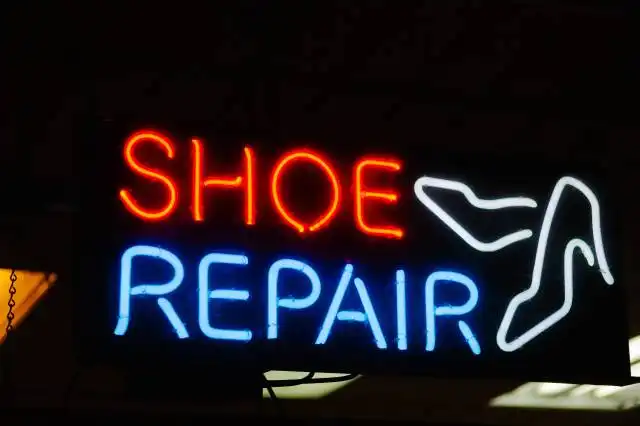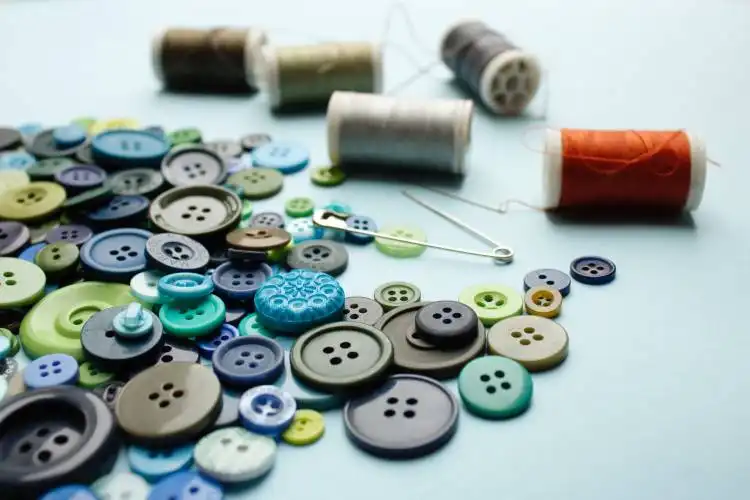Start a Bridal Shop Business
Harnessing Your Inner Wedding Wizard: The Magic of Running a Bridal Shop Business
| Updated


BRIDAL SHOP BUSINESS
Ever fantasized about being a part of someone's fairy tale? A bridal shop business might be your stage! This fascinating business venture allows you to engage in a glamourous and emotional shopping experience, offering an array of wedding-related merchandise. From dazzling gowns to tuxedos and accessories, you are the wizard behind the curtain, making dream weddings a reality. Take a bow and let your couples shine!
Jump to Business Plan
RELATED BUSINESS IDEAS
Browse ALL Clothing & Fashion Trends Business Ideas
Discover Your Perfect Domain
Unlock the door to your online success with our hand-picked selection of premium domain names. Whether you're starting a new venture or rebranding an existing one, the right domain can set the tone for your digital presence. Browse through our curated list, each with its unique potential to enhance your brand's visibility and credibility.
BRIDAL SHOP MINI BUSINESS PLAN
This a quick reality check to help you identify the strengths and weaknesses of your business concept before you dive in.
Business Idea: Bridal Shop Business
Expected Percent Margins:
- Gross Margin: 50-60%
- Net Profit Margin: 10-20%
Earnings Expectations:
- Daily Earnings: Depends on the number and price of bridal gowns sold (averaging at about $1,000 - $2,500 per day)
- Weekly Earnings: Approx, $5,000 - $12,500
- Monthly Earnings: Approx, $20,000 - $50,000
- Annual Earnings: Approx, $240,000 - $600,000
Actions to Hit Those Numbers:
Inventory Management:
- Start-Up Inventory: Begin with a diverse range of gowns, invest around $50,000-$100,000.
- Supplier Relations: Work with reputable bridal gown designers and suppliers.
Marketing and Customer Acquisition:
- Wedding Fairs: Attend and possibly sponsor local wedding fairs and bridal expos.
- Social Media: Regular posts on Instagram, Pinterest, and Facebook showcasing wedding gowns.
Sales and Customer Experience:
- Customer Service: Invest in training for your team to provide top-notch customer service.
- Bookings: Enable advanced and well-managed appointment systems.
Cost Control:
- Outlet Selection: Rent/Buy a beautiful shop in a location with decent foot traffic.
- Utilities and Maintenance: Regular upkeep and attractiveness of the shopfront are crucial.
Business Operations:
- Opening Hours: Flexible hours including evenings and weekends.
- Transaction Volume: Aim to sell at least one wedding dress per day.
Please remember that these are generalized suggestions and can vary greatly. Consulting a financial advisor and conducting thorough market research will provide personalized, accurate advice for your specific situation.
NOT WHAT YOU HAD IN MIND? Here are more ideas



Browse ALL Clothing & Fashion Trends Business Ideas
Grab Your Business Website Name
Before you get caught up in the whirlwind of setting up your business, invest in a domain name. It's a small but significant step that lays the foundation for your brand and makes it easier for customers to find and trust you. Just like you wouldn't build a house without securing the land first, don't build a business without securing your domain name.
"Why? Can't that wait?" Here's why it shouldn't
Step 1: Determine if the Business is Right for You
Before starting a bridal shop business, it is important to determine if this is the right endeavor for you. To do this, you should consider the startup and ongoing expenses associated with running a bridal shop. Startup costs can include the cost of renting a space, purchasing inventory, hiring staff, and marketing. Ongoing expenses can include rent, utilities, payroll, insurance, and other operational costs. Additionally, you should consider the different ways you can make money with a bridal shop. Examples of ways to make money include selling wedding dresses, bridesmaids dresses, accessories, and offering services like alterations and custom designs.
Step 2: Name the Business Once you have determined that a bridal shop business is the right endeavor for you, it is time to name the business. When naming the business, you should consider the type of bridal shop you want to open and the target audience. For example, if you plan to open a bridal shop that specializes in vintage wedding dresses, you may want to include the word “vintage” in the name. Additionally, you should make sure the name is easy to remember and pronounce. You may also want to consider registering the business name with the local government and trademarking the name to protect it from being used by another business.
Step 2: Name the Business
When choosing a name for a bridal shop business, it is important to consider the message that the name conveys. The name should be memorable, easy to pronounce, and should reflect the type of services that the business offers. Additionally, it is important to make sure that the name is not already in use by another business. It is also important to consider the potential for trademarking the name, as this will help to protect the business from potential legal issues. When considering potential names, it is also important to consider the potential for a website domain name. It is important to make sure that the domain name is available and that it is easy to remember and type. Additionally, it is important to consider the potential for a logo that can be used to promote the business.
Step 3: Create a Business Plan
Creating a business plan is an important step in starting a bridal shop business. A business plan should include an executive summary, a company description, a market analysis, a competitive analysis, a description of the product or service, a description of the operations, a description of the management team, a financial plan, and a timeline.
The executive summary should provide an overview of the business, including the mission statement, the goals, and the strategies for achieving them. It should also include a brief description of the company, its products and services, and the target market.
The company description should provide more detail about the company, including its history, its legal structure, its location, and its ownership. It should also include a description of the company’s culture and values.
The market analysis should include an analysis of the target market, including demographic information, market size, and market trends. It should also include an analysis of the competition, including a description of the competitors’ products and services, pricing, and marketing strategies.
The competitive analysis should include an analysis of the competitive landscape, including an analysis of the strengths and weaknesses of the competitors. It should also include an analysis of the competitive advantages of the company, such as its unique products or services, its pricing, and its marketing strategies.
The description of the product or service should include a description of the products or services offered by the company, including features, benefits, and pricing. It should also include a description of the company’s competitive advantages, such as its unique products or services, its pricing, and its marketing strategies.
The description of the operations should include a description of the company’s operations, including its production process, its distribution channels, and its customer service. It should also include a description of the company’s supply chain, including its suppliers, its vendors, and its logistics partners.
The description of the management team should include a description of the company’s management team, including its roles and responsibilities, its qualifications, and its experience. It should also include a description of the company’s organizational structure, including its departments, its teams, and its reporting structure.
The financial plan should include a description of the company’s financial goals, including its revenue goals, its profit goals, and its cash flow goals. It should also include a description of the company’s financial resources, including its capital, its debt, and its equity.
The timeline should include a timeline of the company’s milestones, including its launch date, its product launches, and its marketing campaigns. It should also include a timeline of the company’s financial goals, including its revenue goals, its profit goals, and its cash flow goals.
Step 4: Register Your Business
Registering your business is an important step in starting a bridal shop business. Depending on the state you live in, you may need to register your business with the state or local government. This process usually involves filing paperwork, paying fees, and obtaining a business license. Additionally, you may need to register your business with the IRS and obtain an Employer Identification Number (EIN). This will allow you to open a business bank account and file taxes.
Obtain Necessary Permits and Licenses
In addition to registering your business, you may need to obtain certain permits and licenses to operate a bridal shop. This will vary depending on the state you live in, but may include a sales tax permit, a health permit, and a zoning permit. Additionally, you may need to obtain a liquor license if you plan to serve alcohol at your shop.
Research Local Regulations
It is important to research local regulations before starting a bridal shop business. This includes researching zoning regulations, health regulations, and any other regulations that may apply to your business. Additionally, you should research any local laws that may affect the way you operate your business.
Get Insurance
Getting insurance is an important step in starting a bridal shop business. This will protect your business from potential lawsuits and other liabilities. You should research different types of insurance policies, such as general liability, property damage, and workers' compensation. Additionally, you should consider getting business interruption insurance to protect your business in the event of a natural disaster or other emergency.
Step 5: Obtain Necessary Licenses and Permits
The types of licenses and permits needed to open a bridal shop business vary depending on the location. Generally, businesses need a business license, a seller’s permit, and a zoning permit. It is important to check with the local government to determine what licenses and permits are needed. Additionally, if the business will be selling alcohol, a liquor license may be necessary.
How to Obtain Licenses and Permits
The process for obtaining licenses and permits varies depending on the location. Generally, the business owner will need to fill out an application and submit it to the local government. The application will need to include information such as the business name, address, and type of business. Additionally, the business owner may need to pay a fee to obtain the license or permit.
Cost of Licenses and Permits
The cost of licenses and permits varies depending on the location and type of business. Generally, the cost for a business license and seller’s permit is around $50. Additionally, the cost for a zoning permit may be around $100. If the business will be selling alcohol, the cost for a liquor license may be around $500.
Timeframe for Obtaining Licenses and Permits
The timeframe for obtaining licenses and permits varies depending on the location. Generally, it takes around two weeks to obtain a business license and seller’s permit. Additionally, it may take around one month to obtain a zoning permit. If the business will be selling alcohol, it may take around two months to obtain a liquor license.
Step 6: Find a Location
When choosing a location for a bridal shop business, there are several factors to consider. First, the location should be easily accessible to customers and have plenty of parking. It should also be in a safe and secure area, preferably in an area with a high concentration of bridal shops. Additionally, the location should be in an area with a high foot traffic and visibility. It should also be in an area with a good reputation and a good reputation for customer service. Finally, the location should be in an area that is close to suppliers and other businesses that can provide services to the bridal shop.
Leasing or Purchasing a Location
When it comes to leasing or purchasing a location for a bridal shop business, there are a few options. Leasing is often the more cost-effective option, as it allows the business to save on upfront costs and avoid long-term commitments. However, it is important to consider the terms of the lease and the potential for rent increases. Purchasing a location may be a better option if the business is looking for a long-term commitment and wants to have more control over the property. When considering purchasing a location, it is important to consider the cost of the property, the cost of renovations, and the potential for appreciation.
Step 7: Purchase Supplies and Equipment
When starting a bridal shop business, it is important to purchase the necessary supplies and equipment. This includes items such as mannequins, fabric, thread, needles, and other sewing supplies. Additionally, you will need to purchase furniture such as display cases, shelving, and seating. You may also need to purchase a computer, printer, and other office supplies.
Where to Purchase Supplies and Equipment
When purchasing supplies and equipment for your bridal shop business, it is important to shop around for the best deals. You can purchase supplies and equipment from local stores, online retailers, and wholesalers. Additionally, you can look for used items that may be available at a discounted price. It is important to compare prices and read reviews before making any purchases.
How to Save Money
When purchasing supplies and equipment for your bridal shop business, it is important to look for ways to save money. You can look for sales and discounts, purchase items in bulk, and take advantage of rewards programs. Additionally, you can look for used items that may be available at a discounted price. It is also important to compare prices and read reviews before making any purchases.
How to Store Supplies and Equipment
When purchasing supplies and equipment for your bridal shop business, it is important to have a plan for storing them. You will need to have a designated area for storing items such as fabric, thread, needles, and other sewing supplies. Additionally, you will need to have a place to store furniture such as display cases, shelving, and seating. It is important to keep the area organized and clean to ensure that items are easy to find and access.
Step 8: Market Your Business
When it comes to marketing your bridal shop business, there are many options available. You can use traditional methods such as print ads, radio spots, and television commercials. You can also use digital methods such as email campaigns, social media campaigns, and SEO optimization. Additionally, you can use word-of-mouth marketing by attending bridal shows, networking with other bridal shop owners, and offering discounts to customers who refer other customers.
Tips for Effective Marketing
When it comes to marketing your bridal shop business, it’s important to be creative and think outside the box. You want to make sure that your message stands out from the competition. Additionally, you should focus on targeting the right audience and creating a unique brand identity. You should also use analytics to track the effectiveness of your campaigns and make adjustments as needed. Finally, it’s important to be consistent with your marketing efforts and to keep your message fresh and relevant.
Step 9: Hire Employees
Hiring employees is one of the most important steps in starting a bridal shop business. It is important to find employees who are passionate about the bridal industry and have the skills to help customers find the perfect dress. When hiring employees, it is important to consider their experience, qualifications, and customer service skills. Additionally, you should look for employees who have a good understanding of the bridal industry, as well as the ability to work well with customers. It is also important to consider the cost of hiring employees, as this can be a significant expense.
Employee Benefits
When hiring employees, it is important to consider offering employee benefits. This can include health insurance, paid vacation, and other benefits that will help attract and retain quality employees. Additionally, offering employee benefits can help to create a positive work environment and increase employee morale. It is also important to consider offering incentives to employees, such as bonuses or commission, to reward them for their hard work and dedication. This can help to motivate employees and increase their productivity.
EXPLORE MORE CATEGORIES
Browse ALL Business Idea Categories
TAKE THE NEXT STEPS








